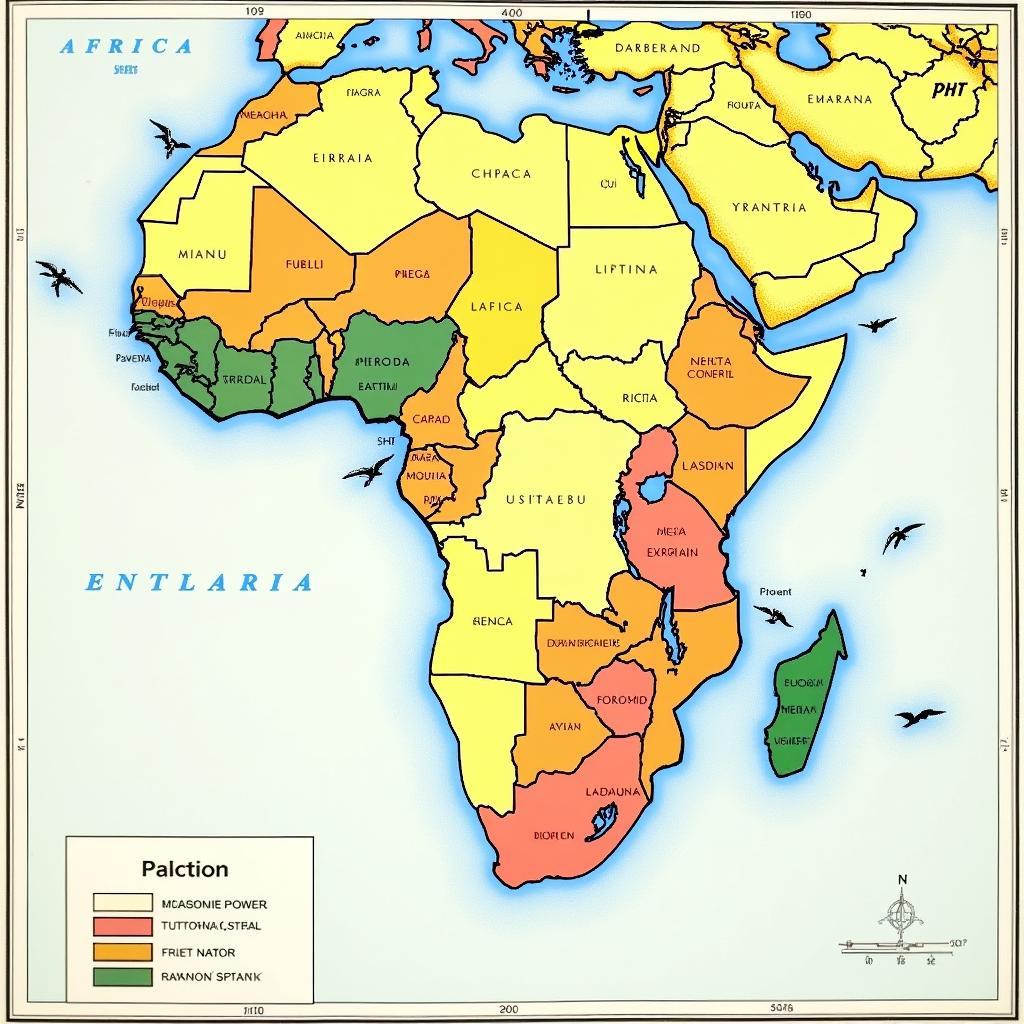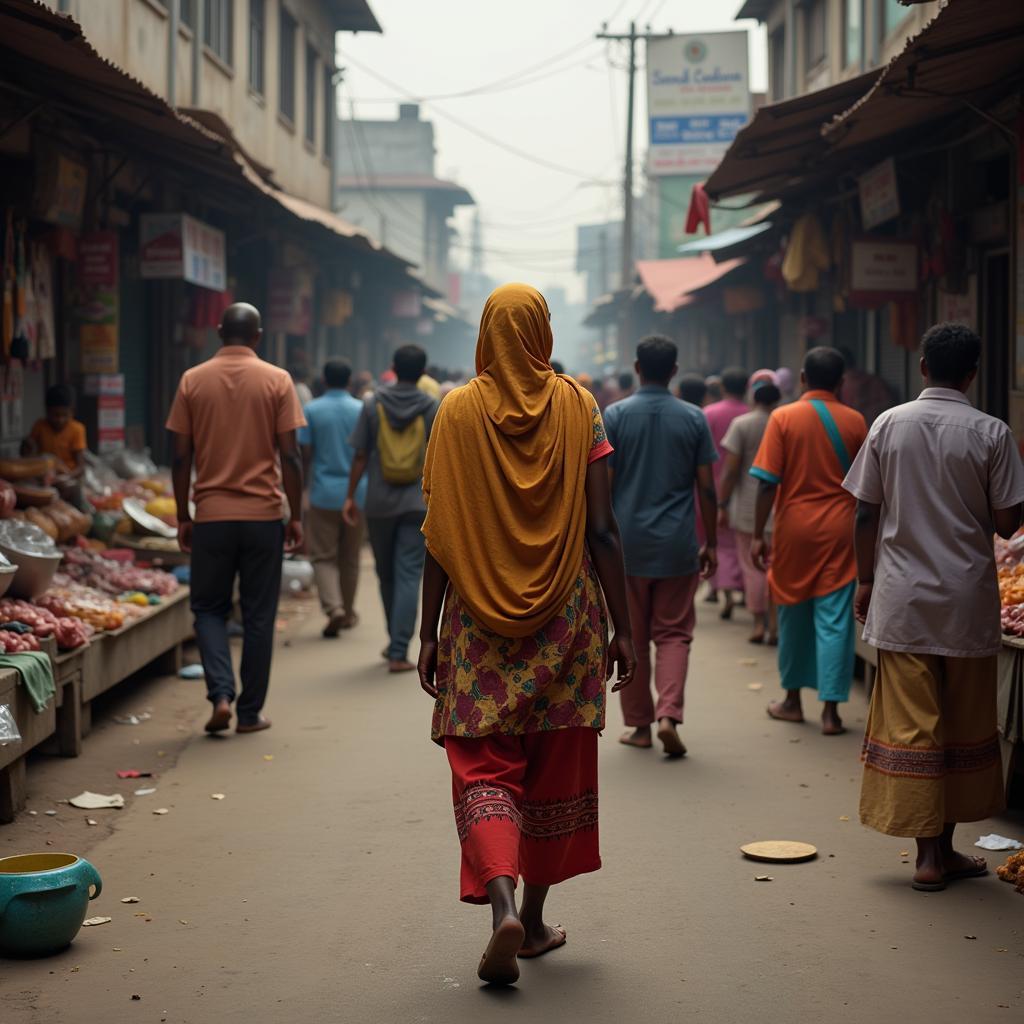African Countries Colonized by European Countries
The colonization of African countries by European powers was a significant historical event with far-reaching consequences. This article explores the complex relationship between African Countries Colonized By European Countries, examining the motivations, methods, and lasting impacts of this period. african colonies 1914 offers a visual representation of the extent of colonization in 1914.
The Scramble for Africa: A Continent Divided
European colonization of Africa intensified dramatically in the late 19th century, a period often referred to as the “Scramble for Africa.” Driven by economic ambitions, political rivalries, and a sense of racial superiority, European powers carved up the continent, imposing their political systems, economic structures, and cultural values. The Berlin Conference of 1884-1885 formalized this division, establishing rules for the acquisition of African territories and solidifying European control. This conference essentially legitimized the exploitation of African resources and people, setting the stage for decades of colonial rule.
What were the primary motivations behind European colonization? Several factors fueled the scramble for Africa. The Industrial Revolution created a demand for raw materials and new markets, which European powers sought to satisfy through the exploitation of African resources like rubber, diamonds, and gold. Political competition between European nations also played a significant role, with each power eager to expand its imperial influence and prestige. Furthermore, a pervasive belief in European racial and cultural superiority justified, in their minds, the subjugation and “civilizing” of African populations.
The Impact of Colonization on African Societies
The impact of European colonization on African societies was profound and multifaceted. Traditional political structures were disrupted or dismantled, replaced by European administrative systems. Economies were restructured to serve European interests, with emphasis on the extraction of raw materials and the production of cash crops for export. This led to the underdevelopment of local industries and the dependence of African economies on European markets.
 Map of European Colonization in Africa
Map of European Colonization in Africa
Furthermore, colonization had a devastating impact on African cultures and identities. European languages and educational systems were imposed, often at the expense of indigenous languages and knowledge systems. Traditional social structures and cultural practices were suppressed or marginalized. This cultural imperialism led to the erosion of African identities and the creation of lasting social and psychological scars.
Which European Countries Colonized Africa?
Several European countries participated in the colonization of Africa, including Britain, France, Germany, Portugal, Italy, Spain, and Belgium. Each power had its own colonial agenda and methods of administration, resulting in diverse experiences across the continent. african countries colonized by italy provides detailed information about Italian colonization in Africa.
 African Resistance to Colonial Rule
African Resistance to Colonial Rule
The Legacy of Colonialism and the Path to Independence
The legacy of colonialism continues to shape African societies today. The arbitrary borders drawn during the colonial era often disregarded ethnic and cultural boundaries, contributing to post-independence conflicts and instability. Economic inequalities and underdevelopment, rooted in the exploitative colonial system, continue to pose significant challenges.
Despite the hardships of colonial rule, African people never ceased to resist. From early uprisings to organized liberation movements, Africans fought tirelessly for their freedom and self-determination. The mid-20th century witnessed a wave of independence movements across the continent, as African nations threw off the yoke of colonial rule. african countries never been colonized provides insights into those nations that managed to remain independent throughout this turbulent period.
Navigating Post-Colonial Challenges
While independence marked a significant turning point, many African nations continue to grapple with the complex legacies of colonialism. Building strong and stable democracies, promoting economic development, and fostering national unity remain key challenges. african colonisation map offers a visual representation of the colonial legacy.
The exploration of African countries colonized by European countries is crucial to understanding the complexities of African history and the challenges facing the continent today. Understanding this history is essential for fostering meaningful dialogue and building a more just and equitable future. african countries colonised by spain offers a look at Spanish colonization in Africa.
Conclusion: Remembering the Past, Shaping the Future
The history of African countries colonized by European countries is a complex and often tragic one, marked by exploitation, oppression, and resistance. However, it is also a story of resilience, determination, and the enduring spirit of the African people. By understanding this history, we can work towards a future where the legacies of colonialism are addressed, and all African nations have the opportunity to thrive.
Dr. Akinyi Ochieng, a renowned historian specializing in African Studies, states: “The impact of colonialism is deeply ingrained in the fabric of African societies, shaping their political, economic, and social landscapes. Acknowledging this historical reality is essential for understanding the contemporary challenges facing the continent.”
Professor Kwame Nkrumah, a leading figure in the Pan-African movement, emphasizes: “The struggle for true independence continues even after the formal end of colonial rule. Building equitable and prosperous societies requires addressing the deep-seated structural inequalities inherited from the colonial past.”
FAQ
- What was the Berlin Conference? The Berlin Conference of 1884-1885 was a meeting of European powers that formalized the division of Africa among themselves.
- Which European country colonized the most African territory? France controlled the largest land area in Africa.
- What were the main motivations for European colonization of Africa? Economic exploitation, political rivalry, and a sense of racial superiority.
- When did most African countries gain independence? The majority of African countries achieved independence in the mid-20th century.
- What are some lasting effects of colonialism in Africa? Political instability, economic underdevelopment, and cultural disruption.
- What is neocolonialism? The continuation of colonial-like exploitation and control by other means, often economic or political.
- How can we learn more about the history of African colonization? Through academic research, historical texts, museums, and cultural institutions.
Need More Information?
Explore other related articles on our website for deeper insights into specific aspects of African history and culture. Learn about the different colonial powers, the resistance movements, and the ongoing challenges facing African nations today.
Need assistance? Contact us 24/7:
Phone: +255768904061
Email: [email protected]
Address: Mbarali DC Mawindi, Kangaga, Tanzania.


